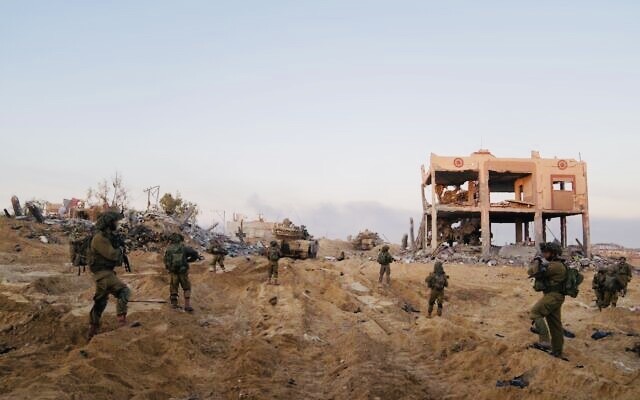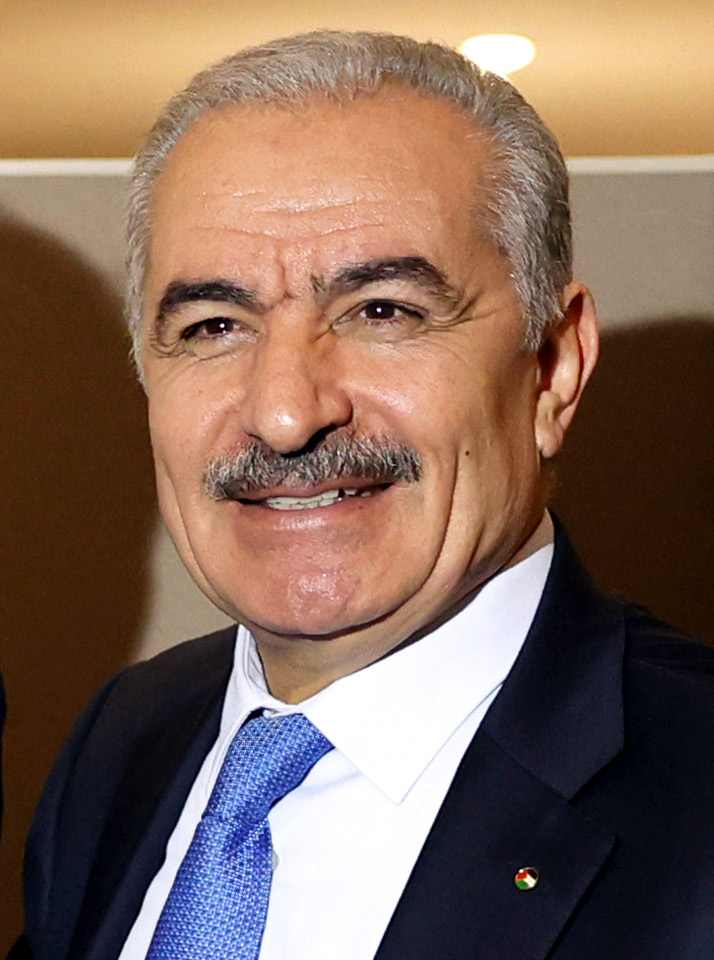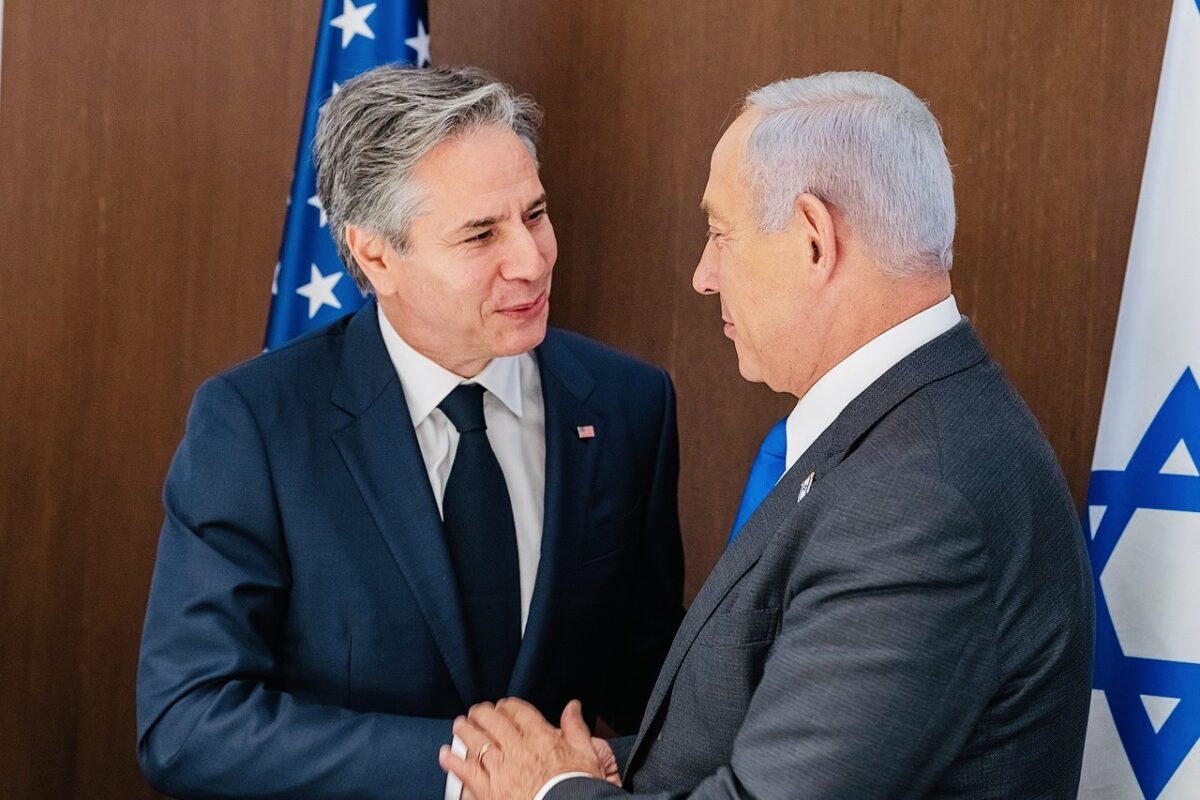The Israel-Hamas war is far from over and may last for many more weeks or months despite the forthcoming pause to facilitate the release of hostages. But already Israel and the United States, its chief ally, are openly discussing the endgame.
U.S. President Joe Biden and American Secretary of State Antony Blinken, who have both backed Israel’s resolve to destroy Hamas’ military capabilities and oust it as the governing authority in the Gaza Strip, have taken the initiative on this matter.
In response, Israeli Prime Minister Benjamin Netanyahu has laid out something of a roadmap for could lie ahead after Israel achieves its objectives.
On November 21, Netanyahu said that the war Israel is currently waging against Hamas will continue until its three major goals are met: the elimination of Hamas as Gaza’s ruler, the release of all Israeli and foreign hostages, and the assurance that Gaza will never again pose a security threat to Israel.
Apart from its promotion of a two-state solution, which is still very far off in the distance and may never even see the light of day, the Biden administration has strongly advised Israel to refrain from reoccupying Gaza and allow the Palestinian Authority to govern Gaza and the West Bank.

Shortly after Israel launched its air campaign in Gaza, following Hamas’ massacre of 1,200 Israelis and foreigners in southern Israel on October 7, Biden said it would be “a big mistake” for Israel to reoccupy Gaza, from which it withdrew unilaterally in the summer of 2005.
Biden’s national security spokesman, John Kirby, reiterated the U.S. position on November 9 when he said, “The president maintains … that reoccupation by Israeli forces is not the right thing to do.”
Biden, however, made it clear that Hamas — an Islamic fundamentalist organization that rejects Israel’s existence — cannot rule Gaza ever again, while Kirby said that a ceasefire now is out of the question.
Blinken has said that Palestinian national aspirations must be taken into account in the future. “It must include Palestinian-led governance and Gaza unified with the West Bank under the Palestinian Authority,” he said on November 8.
He did not flesh out the details, and Kirby remained vague as well. “We don’t have it figured out right now,” he said. “But we know it has to be something different than what it was under Hamas.”
Reacting to their comments, Netanyahu said that Israel must have “overall security responsibility” in Gaza f0r an indefinite period once the war ends. “I insist upon it. There may be pressure on this issue, but I don’t intend to cave.”
He added, “When we don’t have that security responsibility, what we have is the eruption of Hamas terror on a scale that we couldn’t imagine.”
Responding to Netanyahu’s remark, Kirby acknowledged that Israel may well have to remain in Gaza for a while at least. As he said, “I think that all of us can foresee a period of time after the conflict is over where Israeli forces will likely still be in Gaza and will have some initial security responsibilities. But for how long and to what size and scale and scope, I think it’s too soon to know.”
Netanyahu offered his most definitive comments on this issue on November 10. “What we have to see is Gaza demilitarized, deradicalized and rebuilt,” he said. “We don’t seek to conquer Gaza. We don’t seek to reoccupy Gaza. And we don’t seek to govern Gaza. In the foreseeable future … we have to have a credible force that, if necessary, will enter Gaza …”
Rebuffing the United States, Netanyahu ruled out the Palestinian Authority as Gaza’s future governing force, claiming it is unfit to govern Gaza.

Mohammed Shtayyeh, the prime minister of the Palestinian Authority, said recently he will refuse to cooperate unless there is a return to a peace process resulting in a two state solution. “I don’t accept it. Our president (Mahmoud Abbas) does not accept it. None of us will accept it.”
While Kirby has said that Palestinians should be “the determining voice” in deciding Gaza’s future, they may have little or no influence in this issue unless Israel is ready to resume peace talks with the Palestinian Authority.
The last such negotiations took place between 2013 and 2014 and ended inconclusively on the eve of the second Israel-Hamas war. Since then, there have been no peace talks or meetings between Netanyahu and Palestinian Authority President Mahmoud Abbas.
Recently, William Burns, the director of the U.S. Central Intelligence Agency, asked Egyptian President Abdel Fattah el-Sisi whether Egypt would be prepared to temporarily manage security in Gaza during the post-Hamas period, but he declined.
An international peace force might be assembled for this purpose, but Israel appears resistant to that idea. In the past, Israel has cooperated with United Nations peacekeeping forces in the Sinai Peninsula and southern Lebanon.
